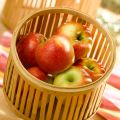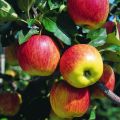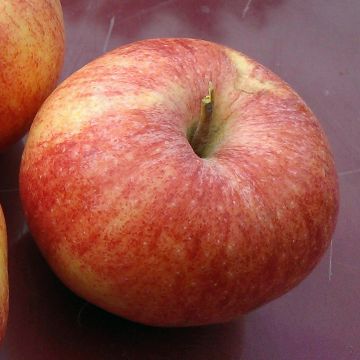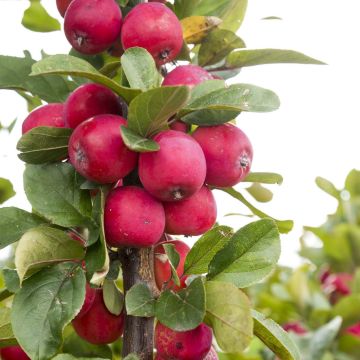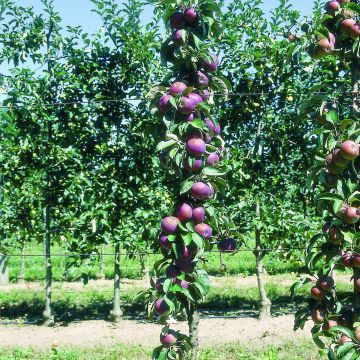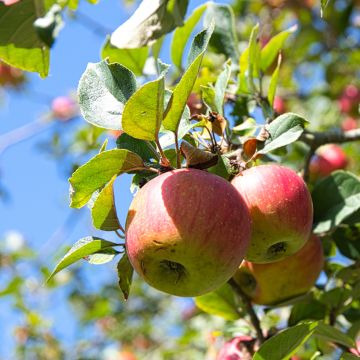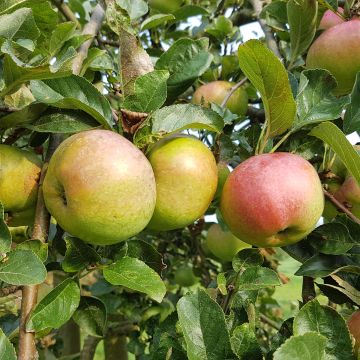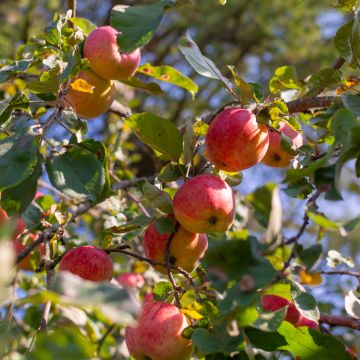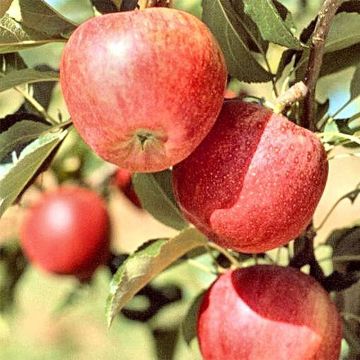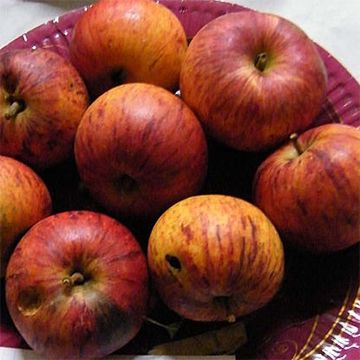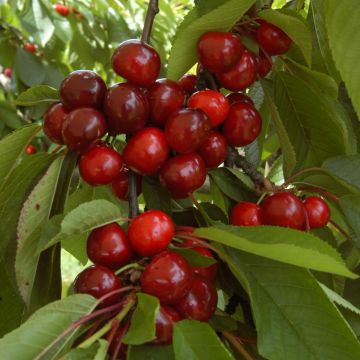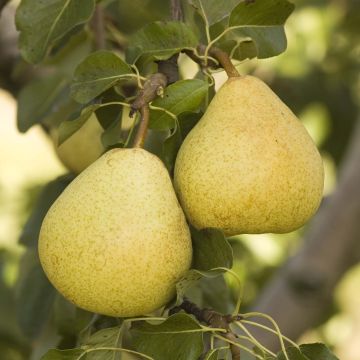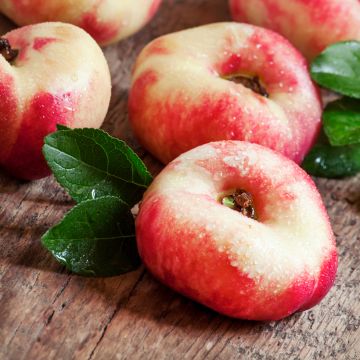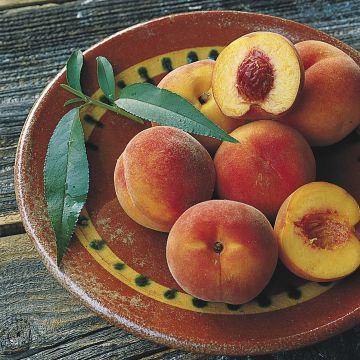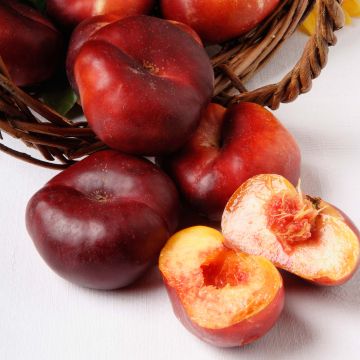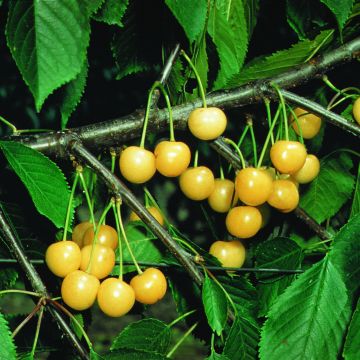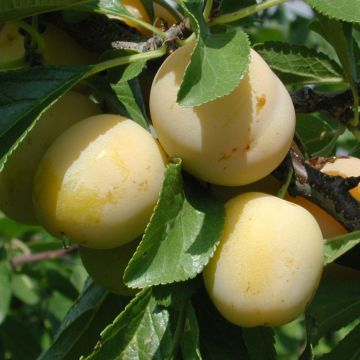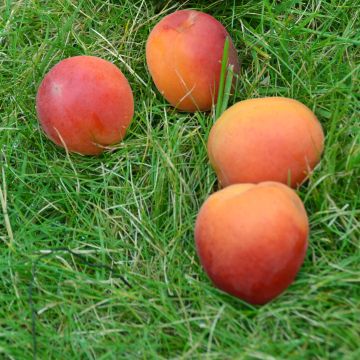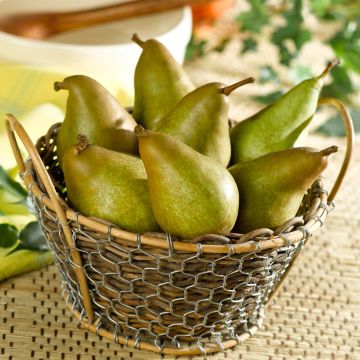País e idioma de entrega
Tu lugar de residencia parece ser:
Your country of residence is:
Para disfrutar de la mejor experiencia en nuestro sitio, puedes cambiar:
País de entrega:
Alemania
Andorra
Austria
Bulgaria
Bélgica
Canadá
Chequia
Chile
Chipre
Croacia
Dinamarca
Eslovaquia
Eslovenia
España
Estonia
Finlandia
Francia
Grecia
Hungría
Irlanda
Islandia
Italia
Letonia
Lituania
Luxemburgo
Malta
Mónaco
Países Bajos
Polonia
Portugal
Reino Unido
Rumanía
Suecia
Suiza
We only deliver seed and bulb products to your country. If you add other products to your basket, they cannot be shipped.
Idioma:
Francés
Alemán
Español
Inglés
My Account
Hola
Mis listas de favoritos
Plantfit
Mi cesta
Inicio de sesión / Registro
¿Ya eres cliente?
¿Todavía no eres cliente?
Crea su cuenta para poder realizar el seguimiento de tu pedido, acceder a nuestro servicio de atención al cliente y, si lo deseas, beneficiar de nuestras próximas ofertas.
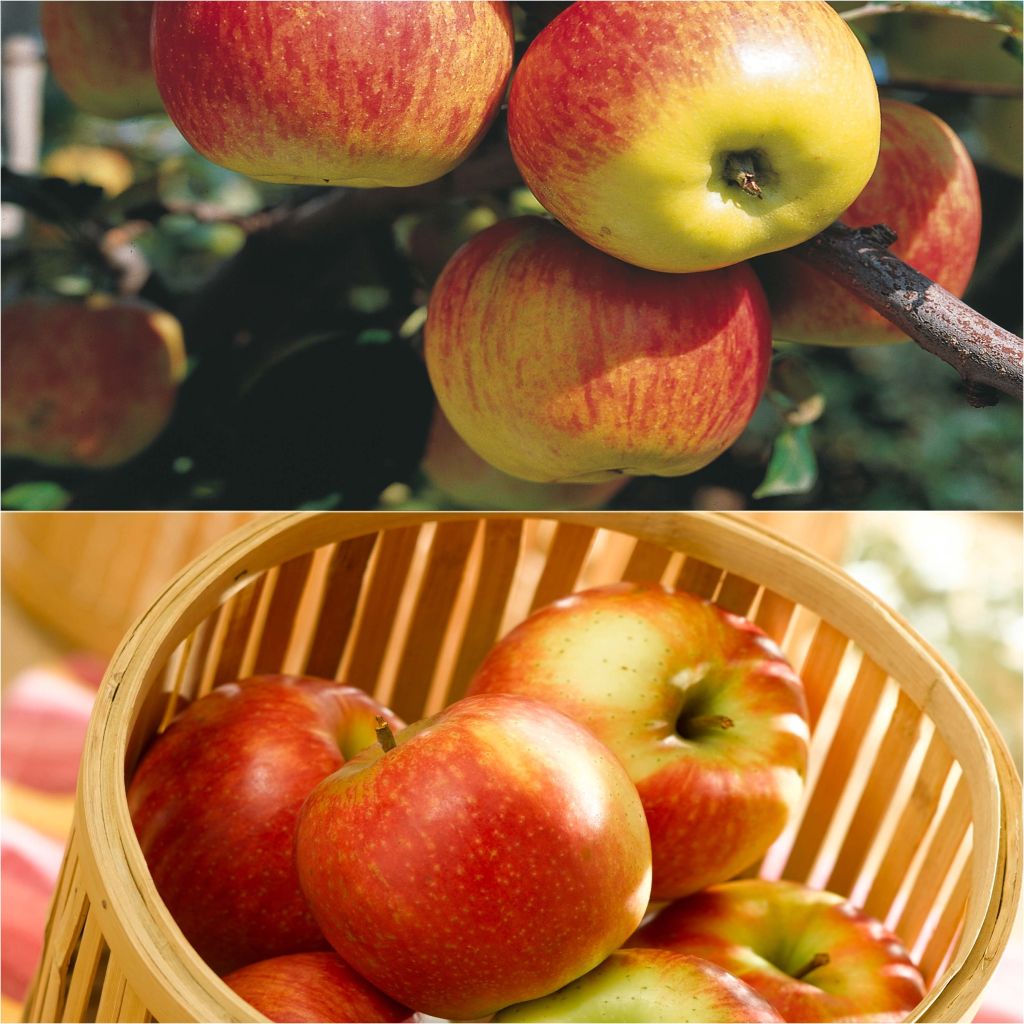

Delbard Table Apple Pollinator Duo with Extended Harvest
Delbard Table Apple Pollinator Duo with Extended Harvest
Malus domestica Delbarestivale® 'Monidel', Delbard Jubilé® 'Delgollune'
Más de para que tu pedido salga hoy mismo.
Enviado por correo a partir del
Gastos de transporte a partir de 5,90 €. Artículos grandes, gastos de envío a partir de 6,90 €.
Más información
Este artículo no está disponible para tu país.
País de entrega:
Alemania
Andorra
Austria
Bulgaria
Bélgica
Canadá
Chequia
Chile
Chipre
Croacia
Dinamarca
Eslovaquia
Eslovenia
España
Estonia
Finlandia
Francia
Grecia
Hungría
Irlanda
Islandia
Italia
Letonia
Lituania
Luxemburgo
Malta
Mónaco
Países Bajos
Polonia
Portugal
Reino Unido
Rumanía
Suecia
Suiza
Programa tu fecha de entrega,
y elige tu fecha en la cesta
6 meses de garantía en el desarrollo de esta planta
Más información
Garantizamos la calidad de nuestras plantas durante un ciclo vegetativo completo, y sustituiremos a nuestro cargo cualquier planta que no se recupere en condiciones climáticas y de plantación normales.
Desde 5,90 € para entrega en un punto de recogida y 6,90 € para entrega a domicilio
Entrega a domicilio exprés en 24-48 horas: 8,90 €.
Composición de esta colección (2 plantas)
Descripción
This Delbard Table Apple Pollinator Duo with Spread Harvest brings together the varieties Delbarestivale and Delbard Jubilée, selected for their tasty apples and staggered productions. Planted in the same garden, these two apple trees pollinate each other, ensuring a good fruit production. The abundant and spread-out harvest starts in August and ends in October.
This duo consists of:
- x1 Delbarestivale® Monidel Apple Tree: a very early variety with apples reaching maturity by the end of August and harvested until September. Yellow with red stripes, these medium-sized apples have firm, crunchy flesh with a balanced, refreshing flavour, exuding a scent of fennel mixed with anise. They are best eaten fresh after harvest and store well. This variety is quite resistant to diseases (including Scab) and adapts well throughout France. This apple tree is not self-fertile, so it should be planted near varieties that bloom at the same time, at the end of April, like 'Delbard Jubilée' to ensure pollination.
- x1 Delbard Jubilée® Delgollune Apple Tree: a productive variety with fruit coloured in red and gold, offering fine, crunchy, juicy, and sweet flesh. Fragrant, it gives off a scent of honey, hazelnut, and banana highly appreciated by gourmets! The fruits are harvested in October and can be consumed immediately, lasting until February. These are very good table apples, suitable for cooking as well. They grow on a vigorous, rustic tree that is less susceptible to diseases. To obtain large-sized fruits, it is recommended to thin the fruits at the beginning of summer. The Delbard Jubilée apple tree sometimes shows a tendency for biennial bearing: consider also carrying out a fruiting pruning. This apple tree is not self-fertile and will be pollinated by Delbarestivale.
The apple tree (Malus domestica) is a fruit tree belonging to the Rosaceae family. It is cultivated almost everywhere in the world and includes a multitude of varieties, ancient or modern, producing apples of various sizes and flavours, more or less sweet or tart. Apple trees are native to Europe, including France, where their presence has been documented since antiquity. Hardy, some varieties can withstand temperatures as low as -30°C, making them suitable for cultivation throughout France.
The domestic apple tree usually does not exceed ten meters in height and width, but this can vary depending on the vigour of the rootstock used. This fruit tree typically has a tall trunk that naturally spreads out. It comes in different forms (bowl-shaped, half-standard, standard...) and can be trained in various ways (column, cordon, espalier...)
The apple tree can be grown in all climates, but particularly thrives in temperate regions, preferably humid ones, such as Normandy. It enjoys sunlight in reasonably moist and rich soil. Traditionally grown in orchards, it can also be cultivated as a standalone tree or even in a hedge. It is an easy fruit tree that requires at least some thinning pruning. Proper fruiting pruning will prevent the biennial bearing phenomenon. An annual or biennial addition of well-decomposed compost also enhances apple tree productivity.
These two fruit trees are delivered in a "ready-to-plant" root ball. During planting, the root ball should be planted as is. The biodegradable tontine surrounding the root ball, which preserves the small roots, will decompose naturally during the plant's growth. By following this method, you ensure better establishment.
Porte
Fruta
Floración
Follaje
Botánica
Malus
domestica
Delbarestivale® 'Monidel', Delbard Jubilé® 'Delgollune'
Rosaceae
Hortícola
Otras Manzano
Plantación y cuidados
For your Apple Tree, choose a sunny location, the soil can be slightly chalky or acidic but without excess. Dig a large planting hole at least 3 times the volume of the root ball. Simultaneously add organic matter (topsoil, compost...) and a base fertilizer such as crushed horn. Do not bury the graft union. Stake if necessary. Water generously, even in winter, even if it rains. Fruit trees are ideally planted between October and March, outside of the frost period. Container-grown plants can be planted all year round except during periods of extreme heat or frost.
In winter, you can add a small handful of wood ash, rich in potassium, to improve fruiting. Watch for possible aphid attacks during the season. White powdery mildew caused by a fungus, powdery mildew, may appear on the leaves in summer; this does not harm fruit development in gardens. Only keep harvested fruits. Store the apples stem-side down, on shelves or in crates. Choose a preferably completely dark, dry, and cool place but frost-free.
¿Cuándo plantar?
¿En qué lugar?
Cuidado
Este artículo todavía no ha recibido comentarios; sé el primero en compartir tu experiencia.
Frutales Georges Delbard
¿No has encontrado lo que buscas?
La rusticidad es la temperatura invernal más baja que una planta puede soportar sin sufrir daños graves o incluso la muerte. Sin embargo, la rusticidad se ve afectada por la ubicación (zona protegida, como un patio), la protección (cubierta de invierno) y el tipo de suelo (la rusticidad mejora con un suelo bien drenado).

Condiciones generales de uso del servicio de fotos del cliente
Con el fin de favorecer la interacción y el intercambio de experiencias entre jardineros, Promesse de fleurs ofrece varios servicios que permiten cargar contenidos en su Sitio web, en particular a través del módulo "Compartir fotos".
El usuario se compromete a no:
- Publicar contenidos ilegales, perjudiciales, insultantes, racistas, que inciten al odio, revisionistas, contrarios a las buenas costumbres, que atenten contra la vida privada o vulneren los derechos privados de terceros, en particular el derecho a la imagen de las personas y de los bienes, los derechos de propiedad intelectual o el derecho a la vida privada
- Publicar contenidos en nombre de un tercero
-
Asumir la identidad de un tercero y/o publicar cualquier información personal sobre un tercero
En general, los Usuarios se comprometen a abstenerse de cualquier comportamiento poco ético.
Todos los Contenidos, en particular, textos, comentarios, archivos, imágenes, fotos, vídeos, obras, etc., que pueden ser objeto de derechos de propiedad, derechos de propiedad intelectual, derechos de imagen u otros derechos privados, siguen siendo propiedad del Usuario, a reserva de los derechos limitados concedidos por la licencia definida a continuación a Promesse de fleurs. El Usuario es libre de publicar o no dicho Contenido en el Sitio web, especialmente a través del servicio "Compartir fotos", y acepta que este Contenido se haga público y libremente accesible, especialmente en Internet.
Reconocen, se comprometen y garantizan que disponen de todos los derechos y autorizaciones necesarios para dicha publicación en el Sitio, en particular en lo que respecta a la legislación vigente y a los derechos de privacidad, propiedad, propiedad intelectual, imagen, contratos o de cualquier otra naturaleza. Al publicar dicho Contenido en el Sitio, el Usuario es consciente de que compromete su responsabilidad como editor del Contenido en el sentido de la ley, y concede a Promesse de fleurs una licencia no exclusiva, gratuita y mundial para dicho Contenido, durante toda la duración de su publicación, incluidos los derechos de reproducción, representación, carga, visualización, ejecución, transmisión y almacenamiento.
Los usuarios también autorizan a que su nombre se asocie al Contenido y aceptan que esta asociación no siempre pueda realizarse.
Mediante su publicación, los usuarios autorizan que los Contenidos sean automáticamente accesibles en Internet, en particular en otros sitios y/o blogs y/o páginas web del sitio Promesse de fleurs, incluidas en particular las páginas de las redes sociales y el catálogo de Promesse de fleurs.
Los usuarios pueden obtener libremente la devolución de los contenidos confiados poniéndose en contacto con el servicio de atención al cliente a través del formulario de contacto.
Los periodos de siembra indicados en nuestro sitio web se aplican a los países y regiones de la zona 8 del USDA (Francia, Reino Unido, Irlanda, Países Bajos).
En zonas más frías (Escandinavia, Polonia, Austria...), retrase 3-4 semanas cualquier siembra al aire libre, o siembre en invernadero.
En climas más cálidos (Italia, España, Grecia, etc.), adelante unas semanas la siembra al aire libre.
El periodo de recolección indicado en nuestro sitio web se aplica a los países y regiones de la zona USDA 8 (Francia, Inglaterra, Irlanda, Países Bajos).
En las zonas más frías (Escandinavia, Polonia, Austria...) es probable que la cosecha de frutas y hortalizas se retrase 3-4 semanas.
En las zonas más cálidas (Italia, España, Grecia...), es probable que la cosecha se adelante, dependiendo de las condiciones meteorológicas.
El periodo de plantación indicado en nuestro sitio web se aplica a los países y regiones situados en la zona USDA 8 (Francia, Reino Unido, Irlanda, Países Bajos).
Variará en función de su lugar de residencia:
- En las zonas mediterráneas (Marsella, Madrid, Milán, etc.), el otoño y el invierno son los mejores periodos de plantación.
- En las zonas continentales (Estrasburgo, Múnich, Viena, etc.), retrase la plantación de 2 a 3 semanas en primavera y adelántela de 2 a 4 semanas en otoño.
- En las regiones montañosas (Alpes, Pirineos, Cárpatos, etc.), es mejor plantar a finales de primavera (mayo-junio) o a finales de verano (agosto-septiembre).
En climas templados, la poda de los arbustos de floración primaveral: forsitia, spireas, etc. debe realizarse justo después de la floración.
La poda de los arbustos de floración estival: árbol de Júpiter, perovskia, etc. puede realizarse en invierno o en primavera.
En las regiones frías y con plantas sensibles a las heladas, evite podar demasiado pronto, cuando aún pueden producirse heladas severas.
El periodo de floración indicado en nuestra página web se aplica a los países y regiones situados en la zona USDA 8 (Francia, Reino Unido, Irlanda, Países Bajos, etc.).
Variará en función de su lugar de residencia:
- En las zonas 9 a 10 (Italia, España, Grecia, etc.), la floración se producirá entre 2 y 4 semanas antes.
- En las zonas 6 a 7 (Alemania, Polonia, Eslovenia y regiones montañosas bajas), la floración se retrasará de 2 a 3 semanas.
- En la zona 5 (Europa Central, Escandinavia), la floración se retrasará de 3 a 5 semanas.
